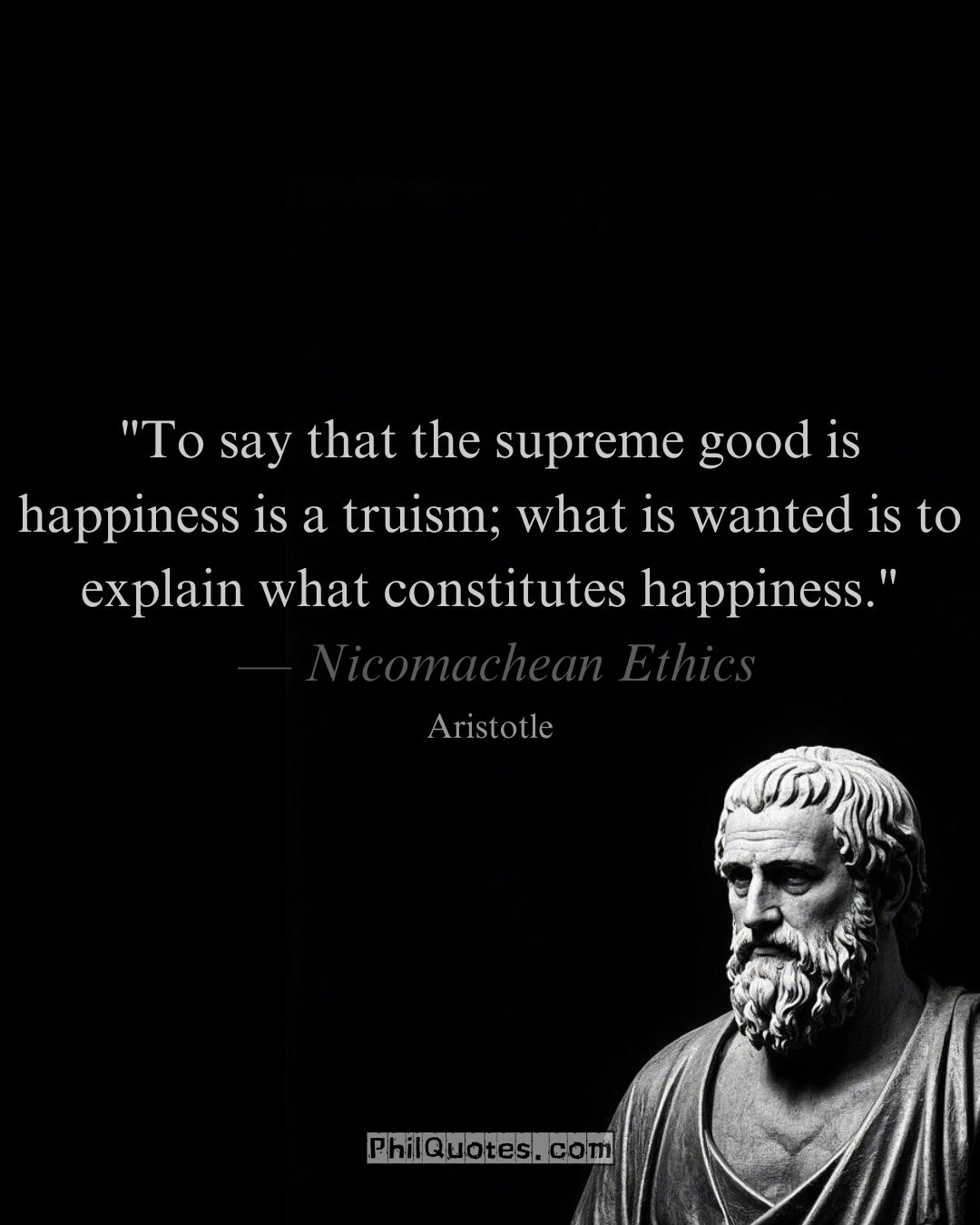
“To say that the supreme good is happiness is a truism; what is wanted is to explain what constitutes happiness.”
— Aristotle, Nicomachean Ethics, Book I, Chapter 4
Simple Explanation:
Aristotle rejects vague notions of happiness. True supreme good (eudaimonia) isn’t fleeting joy or luck, but lifelong excellence achieved through virtuous activity (courage, wisdom) and rational purpose — a recipe he spends 10 books dissecting.
Real-World Connection:
① Mastering a Craft →
You practice guitar daily (action) → perfect technique (skill good) → join a band (social good) → experience eudaimonia through artistic expression (constituted happiness).
② Parenting with Intention →
You read to your child (action) → foster curiosity (immediate good) → nurture empathy (ethical good) → build a legacy of kindness (supreme good).
③ The Hidden Formula →
Happiness = Virtue (doing right) × Reason (choosing wisely) × Time (sustaining both). One without the others collapses into hedonism, greed, or empty ritual.